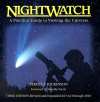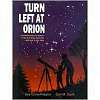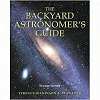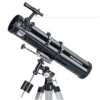Astronomy as a hobby -
The beauty of a starry night brings a remarkable sense of awe and using a telescope or binoculars can deepen this sense. With just some basic equipment, a little knowledge and a few hours under a dark sky you will be hooked on this rewarding hobby. Our night sky is full of amazing sights and before long you will be finding and looking at planets, nebulae, galaxies and many more objects.
Astronomy, like many other hobbies can be very expensive. Some of the finer, and more powerful telescopes, can run into the tens of thousands of dollars. But you don't need to spend this kind of money to thoroughly enjoy this hobby. You can get started on a small budget.
What do you need to get started in your stargazing?
There are a few things that you will need in order to get started as a stargazer.
First off you will need clear nights away from any bright city lights. If you live in a big city it will be difficult or even impossible to enjoy this hobby. You will have to make plans to get out of the city for your stargazing. Streetlights and other forms of night light in a city cause something that astronomers refer to as light pollution. This pollution brightens the night sky and makes it difficult to observe anything.
Is your night sky okay? This is easy to test. Simply go outside at night on a cloudless night and look up at the sky. Is it a rich dark color? Can you see thousands of stars? Can you make out the different colors of the stars? That's right! Stars come in many different colors and you should be able to see this.
If your night sky is a dim shade of gray and the stars are not crystal clear then you will need to make plans to leave the city when you want to do your stargazing. This will be the only way to realize the full potential of your telescope or binoculars.
Second off you will need a handbook or star charts that will show you where the various objects of interest are.
Just simply grazing around the night sky is very rewarding. But, with a telescope or binoculars there are tens of thousands of stars and objects to look at. And to be frank, most stars look the same! Do you know what a planet looks like to the naked eye? It looks just like a star! So without a guide you probably would never find any planets. There are also many galaxies and nebulae that look just like stars to the naked eye. So get yourself a good book with some star charts. It's worth the cost. I have some recommendations here.
Finally you will need something to magnify the power of your eyes. This can be either a telescope or binoculars. If you already have a pair of binoculars then you can begin your stargazing!
Continue on to Part 2 of the beginners astronomy guide
About Telescopes
There are four different major types of telescopes that I will describe here. I will give you the pro's and con's of each type. What type of telescope you get will depend on your own personal preference and on your needs and budget and this short summary will help you make a good decision as to what is right for you.
The Types of telescopes
- Refractor
- Reflector
- Catadioptric (or Maksutov)
- Dobsonian
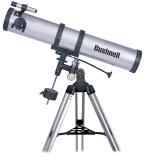
The Refractor Telescope - This is the telescope that is most commonly thought of. At the right end of the scope is a large lens. At the left end of the scope is the small eyepiece that you look through. The picture on the left shows this type of telescope with a small telescope mounted on top. This is the spotter telescope. It helps you to easily find objects in the sky. This type of telescope is very popular in the smaller sizes and they can be quite inexpensive. But if you want to get a larger telescope this type can be very expensive - easily costing thousands of dollars.

The Reflector Telescope - Instead of a lens this telescope has a mirror. Shown in the picture at the left is a reflector. The light comes into the tube on the left, it travels down the tube to the mirror on the right where it is reflected up to a small mirror to the eyepiece on the left. So unlike the reflector where you look in one end and point. This telescope has the eyepiece at the same end as the opening. Notice also the small spotter telescope. One of the advantages of this type of telescope is light gathering ability compared to price. You can get a very affordable reflector with a ten inch mirror. A refractor with a ten inch lens would cost easily ten thousand dollars. Disadvantage? Generally reflectors are not as good as refractors. Given any refractor and reflector each with the same size aperture the refractor will almost always outperform the reflector. Bushnell 78-9518 Deep Space 675 x 4.5-Inch Reflector Telescope
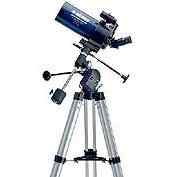
The catadioptric or Maksutov telescope - This type of telescope combines both the reflector and the refractor in that it has both a lens at the front and a mirror at the back. This type of telescope generally has superior performance to the other types of telescopes and even the smallest of these telescopes will generally outperform larger scopes of the other kinds. The disadvantage is the price. This more extensive arrangement of lenses and mirrors comes at a cost. One big advantage is the portability. This type of telescope is very easy to pack up and take out to a secluded location. If you are really serious about astronomy this may be the type for you. Konus 90 x 1200mm MotorMax Electronic Maksutov Reflector Telescope
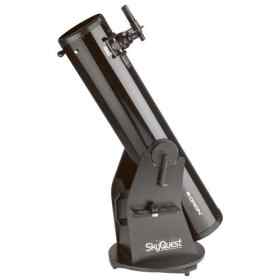
The Dobsonian - This type of telescope has the identical mirror and optics as the reflector telescope. The thing that makes it different is the style of cradle that the telescope is mounted on. This type of mount makes the telescope very easy to use and very price effective. This is a great option for a beginner astronomer. It is easy to use and for a reasonable price you can get a larger scope. Orion SkyQuest XT8 Dobsonian Reflector Telescope
Continue on to Part 2 of the beginners astronomy guide
Astronomy Books for beginners
Continue on to Part 2 of the beginners astronomy guide
Some recommended Telescopes
Continue on to Part 2 of the beginners astronomy guide
|
![]()








